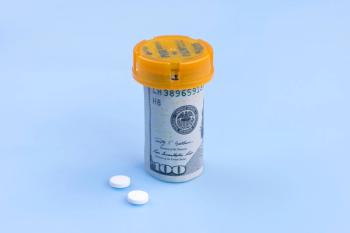
Support for DIR Fee Reform Legislation Continues
Stakeholders are pushing for legislation aimed at pharmacy direct and indirect remuneration (DIR) reform.
According to the National Community Pharmacists Association (NCPA), pharmacy price concessions have increased by 91,500% in the last decade.2
DIR fees have been cited as an integral reason in for pharmacies closing. Further, access to health care services is reduced due to the current system in rural and underserved communities. Reform would enable transparency and limit pharmacy benefit managers (PBM’s) clawing back fees from pharmacies.2
On June 17, 249 organizations signed a letter to Congress to urge health care reform through the
According to National Community Pharmacists Association, “The Centers for Medicare & Medicaid Services (CMS) recently disclosed that [PBMs] increased retroactive fees on pharmacies by an astonishing 91,500% in recent years. This astronomical growth of pharmacy DIR fees – combined with how they are often assessed long after the point of sale – makes it incredibly difficult to control expenses or manage cash flow at pharmacies, particularly for small business neighborhood pharmacies. This ultimately threatens all pharmacy operations and patient care services, whether that be dispensing medications or administering COVID-19 vaccines and testing.
In addition, the fees disadvantage seniors by assessing a higher cost-share against their Part D deductible. These patients are pushed more quickly into the so-called Part D donut hole. Using CMS’ own data we have estimated that shifting these fees to point-of-sale and allowing patients to realize benefits of the lower adjusted price could potentially result in net savings of more than $200 annually for the average senior.”
The bipartisan effort aims to protect pharmacies and establish a new pharmacy performance system based on standardized, evidence-based measures. In a press release published by NCPA, the urge for health care reform is detailed, describing the many ways that DIR fees have harmed patients and pharmacists alike.2
Currently, PBMs, or third-party administrators, and Part D plans use their own criteria that are not standardized to calculate pharmacy DIR fees.1 In a time when the role of the pharmacist is expanding and necessary for the community both through independent pharmacy and community pharmacy, it is vital that reform be made. The bill requires standardized measures to be adopted for CMS to properly assess the performance of a pharmacy. Next, the plan stars rating system will be implemented to further encourage the adoption of the new measures.2
NCPA further stated, “Support for pharmacy DIR fee reform has been growing for years among not only pharmacy but also patient groups, business groups, and policymakers too. There have been talks in Congress about including it in drug pricing legislation which would be helpful, but we’re fighting for a fix every way we can, including a lawsuit filed earlier this year against the Department of Health and Human Services. The damage caused by pharmacy DIRs has escalated to an existential threat to community pharmacies and must be stopped. Pharmacy owners need relief from oppressive pharmacy DIR fees.”
It is evident that passing this bill will boost transparency and cost predictability, therefore supporting both pharmacies and patients effectively.2 Additionally, it will preserve access to independent community pharmacies. Furthermore, this bill will mitigate unaffordable Medicare Part D premiums by not driving up patient costs, which the current system does.3
References
- DIR Fees. National Association of Chain Drug Stores Updated June 17, 2021. Accessed June 23, 2021. https://www.nacds.org/dir-fees/.
- Stakeholders Make Push for Pharmacy DIR Reform. News release. National Community Pharmacists Association; June 17, 2021. Accessed June 23, 202. https://ncpa.org/newsroom/news-releases/2021/06/17/stakeholders-make-push-pharmacy-dir-reform.
- New York City Pharmacist Society.Pharmacists Society of the State of New York, Inc. Accessed June 23, 2021. https://www.pssny.org/page/NYCPS.
Newsletter
Pharmacy practice is always changing. Stay ahead of the curve with the Drug Topics newsletter and get the latest drug information, industry trends, and patient care tips.























